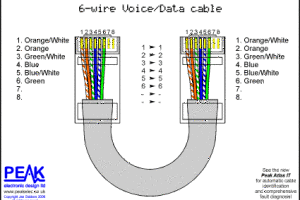VOIP phone system installation
VOIP phone system installation
The installation of a VOIP phone system is faster and easier than a conventional phone system. If you’ve overseen the installation of a traditional PBX system in your office, you undoubtedly know how complex a traditional telephone can be. VOIP phone systems do not rely on an on-site private branch exchange system, and thus they require very little by way of actual installation.
On-site, the installation can usually be done in a matter of minutes. Rather than having to connect to a centrally located PBX system, each telephone will connect directly to the Internet. A VOIP phone installation involves individual telephones that are all internet-capable devices. Much of the actual call routing and programming will be done by the VOIP system remotely. There is usually a web-based platform that you can log into to make changes, such as call forwarding. A VOIP phone system is very easily customized and very simple to use.
Unlike conventional telephone systems, each line will not have to be installed separately. With a VOIP system, you can have as many lines as you desire. You simply need to direct the VOIP company into creating new lines as necessary, and this is usually done without charge. You may also want to discuss long distance calls at the same time, as different VOIP services handle long distance calling in different ways.
In some cases, the VOIP phone system may need an additional Internet line. This is usually only the case if the VOIP phone system will be experiencing a large amount of traffic. Other times, the voice traffic can be transferred with the data traffic on the network. Businesses that rely heavily on their phone services may want to install a second Internet line to ensure that their phones remain up if there are problems with the Internet. However, most areas have extremely stable Internet access and will not experience any difficulties.
Companies that already have a PBX installed may still be able to use VOIP through a procedure called trunking. This allows the company to maintain its internal network of calls while still using less expensive Internet access in place of telephone access. It is an excellent compromise for companies that have put a lot of effort into their systems, but it isn’t quite as versatile as a pure VOIP phone system.
VOIP phone systems are usually far more cost-effective than traditional telephone systems, making them an ideal choice for businesses that want to reduce their telephone budgets. There are many unique benefits to VOIP systems that are not available in conventional telecom systems, such as easy customization and the ability to add multiple lines.




